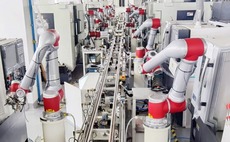
Affinity bets again on the protein theory
Having bought New Zealand poulty producer Tegel Foods and Australian deli meats specialist Primo Smallgoods, Affinity Equity Partners’ third pan-regional fund is already heavily invested in the Asian “protein theory.” Both companies are looking to distribute in emerging markets, capitalizing on growing demand for premium produce.
The 12th and final investment from the fund completes the circle. Affinity has paid $123 million for a 40% stake in Beijing's largest dairy provider as the group looks to expand, addressing the ...
Latest News
Asian GPs slow implementation of ESG policies - survey
Asia-based private equity firms are assigning more dedicated resources to environment, social, and governance (ESG) programmes, but policy changes have slowed in the past 12 months, in part due to concerns raised internally and by LPs, according to a...
Singapore fintech start-up LXA gets $10m seed round
New Enterprise Associates (NEA) has led a USD 10m seed round for Singapore’s LXA, a financial technology start-up launched by a former Asia senior executive at The Blackstone Group.
India's InCred announces $60m round, claims unicorn status
Indian non-bank lender InCred Financial Services said it has received INR 5bn (USD 60m) at a valuation of at least USD 1bn from unnamed investors including “a global private equity fund.”
Insight leads $50m round for Australia's Roller
Insight Partners has led a USD 50m round for Australia’s Roller, a venue management software provider specializing in family fun parks.







